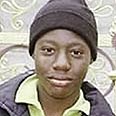
Obama adviser: No smoking gun in airline bomb plot
US president's adviser says 'there was no single piece of intelligence' pointing to Umar Farouk Abdulmutallab's plans to try to bomb Detroit-bound airliner. Meanwhile, UK official says British intelligence officials knew suspect had ties to extremists, but did not consider him a threat
US intelligence agencies did not miss a "smoking gun" that could have prevented an alleged attempt to blow up a US airliner on Christmas Day, President Barack Obama's top counterterrorism adviser said Sunday.
White House aide John Brennan cited "lapses" and errors in the sharing of intelligence and clues about the Nigerian man accused in the foiled attempt.
"There is no smoking gun," Brennan said. "There was no single piece of intelligence that said, 'this guy is going to get on a plane.'"
Brennan is leading a White House review of the incident. Obama has said there was a systemic failure to prevent the attack, which he said was instigated by an affiliate in Yemen of the al-Qaeda terrorist network.
Obama ordered a thorough look at the shortcomings that permitted the plot, which failed not because of US actions but because the would-be attacker was unable to ignite an explosive device. The president has summoned homeland security officials to meet with him in the White House Situation Room on Tuesday.
Brennan cited "a number of streams of information" - the 23-year-old suspect's name was known to intelligence officials, his father had passed along his concern about the son's increasing radicalization - and "little snippets" from intelligence channels. "But there was nothing that brought it all together."
"In this one instance, the system didn't work. There were some human errors. There were some lapses. We need to strengthen it. But day in and day out, the successes are there."
Umar Farouk Abdulmutallab apparently assembled an explosive device, including 80 grams of Pentrite, or PETN, in the aircraft toilet of a Detroit-bound Northwest Airlines flight, then planned to detonate it with a syringe of chemicals. Passengers intervened, and the plan failed.
"What we need to do as an intelligence community, as a government, is be able to bring those disparate bits and pieces of information together so we prevent Mr. Abdulmutallab from getting on the plane."
Brennan didn't say whether anyone is in line to be fired because of the oversights. He stood by Homeland Security Secretary Janet Napolitano, although he acknowledged she has "taken some hits" for saying that the airline security system had worked. It didn't, and she clarified her remarks to show she meant that the system worked only after the attack was foiled, Brennan said.
He said the situation was not like before the attacks of September 11, 2001, when intelligence agencies failed to share tips and information that might have uncovered the plot.
He said there "were no turf battles" between agencies. "There's no evidence whatsoever that any agency or department was reluctant to share" information.
Brennan appeared on "Fox News Sunday," CNN's "State of the Union," ABC's "This Week," and NBC's "Meet the Press."
UK knew suspect had extremist ties
Meanwhile, a senior British official said Sunday that British intelligence officials knew that Abdulmutallab had ties to UK extremists but did not consider him enough of a high risk to alert American authorities.
Officials realized about a year after Abdulmutallab came to London to study in 2005 that he was in contact with Islamic extremists whose communications were being monitored, a senior government official told The Associated Press.
But there were no signs that Abdulmutallab wanted to target the United States or was considering turning toward violence, the official said, speaking on condition of anonymity because of the sensitivity of his work.
"It was clear he was reaching out to radical extremists in the UK but there was nothing to indicate he was violent," the official said. "There is a very large number of people in the UK who express interest in radical extremism but never turn to violence. He only pinged up on our radar because of other people we were interested in."










